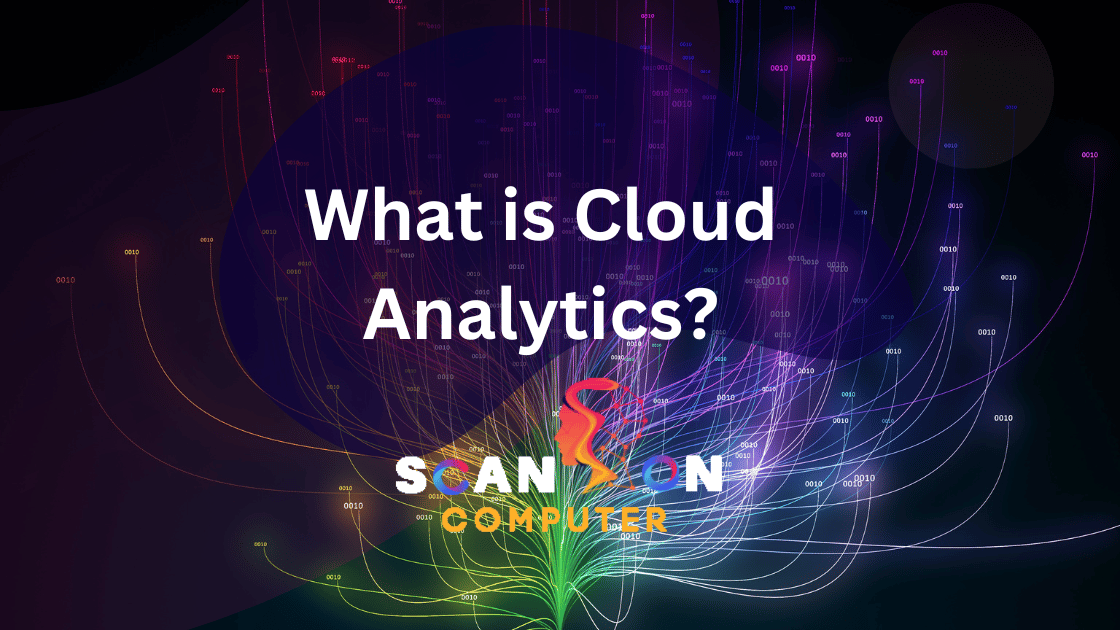Data analytics solutions allow companies to use data to uncover insights that improve business performance. Such solutions can increase agility, reduce costs and uncover growth opportunities.
How Cloud Analytics Can Improve Business Performance?
Cloud analytics platforms offer businesses a scalable and affordable alternative to physical servers that require substantial capital for installation and operation, allowing businesses to utilize additional data resources when demand spikes while cutting costs when demand decreases.
What is Cloud Analytics?
Cloud analytics is business intelligence software that processes data in the cloud to reduce costs and time to insight. Businesses of all industries use it for various applications ranging from analyzing web usage data to improving forecasts and sales predictions; optimizing IT infrastructure optimization to spotting security incidents within log data – just to name a few!
Cloud analytics solutions typically feature self-service features that make it easy for data professionals and business users alike to view, share, and analyze data. This makes global teams collaborate in real time more efficiently while encouraging continuous discovery. Furthermore, these cloud solutions make scaling easy when demand increases; on-premise solutions require costly upgrades in hardware for this.
One key advantage of cloud analytics is its ability to aggregate disparate data sources from various platforms into a centralized dashboard, shortening decision making time by providing unified storage and warehousing and creating predictive models that improve real-time prediction, forecasting, and decision-making processes.
How does cloud analytics work?
Cloud analytics follows the same fundamental principles of traditional data analytics, but are hosted on-premise instead. This allows businesses to utilize it to monitor, collect and analyze real-time data allowing for faster decision-making and innovation.
Cloud analytics solutions require connecting to multiple different kinds of data sources in order to function. This may include website traffic, CRM/ERP systems, mobile apps and social media platforms – with each source’s data then being aggregated together and analyzed before being presented in intuitive formats as insights.
Cloud analytics works by eliminating the need for on-premise hardware and support, which can be both expensive and vulnerable for organizations. By partnering with a cloud analytics solution provider, organizations can reduce these expenses and focus on their core mission instead of being bogged down with complex data analysis tasks.
Cloud analytics solutions allow organizations to respond rapidly to rapid growth or data surges without incurring unnecessary expenses for hardware or staffing increases. By adding additional instances quickly, cloud analytics solutions allow businesses to expand quickly without incurring major expenditure.
What are the benefits of cloud analytics?
Cloud analytics are a valuable business asset that help organizations manage large data sets more efficiently and identify ways to increase results while lowering operational costs by eliminating the need to purchase and manage own data centers.
Business are freed up to concentrate on other aspects of their company while being able to quickly scale up cloud analytics instances during periods of high usage, or scale them back down when demand falls off.
Businesses can also take advantage of sharing analytics in real-time with multiple stakeholders, providing a centralized view of data for faster decision-making. Furthermore, cloud analytics tools allow employees to collaborate on projects from anywhere making them ideal for remote or hybrid work arrangements.
Cloud analytics offer business users self-service access to analytics, which increases productivity and efficiency. They also allow organizations to utilize remote data centers, saving on infrastructure and equipment costs as their businesses expand quickly. Cloud analytics may also reduce operational risk by making sure data backup is protected in case of disaster.
How cloud analytics differ from event analytics?
Businesses invest in analytics solutions in order to achieve their business goals, with one key aim being improved decision-making. According to HBR research, 82% of respondents reported their analytics tools improved the quality of their decisions – providing smarter ways for companies to drive new revenue and growth.
A true cloud analytics solution provides a holistic view of your data, bringing together disparate sources from across your business systems into one integrated interface. Furthermore, these advanced analytics models allow for real-time analysis and decision making processes by providing access to real time insights on data insights that matter.
A great cloud analytics platform should offer scalable capabilities, allowing you to increase capacity as your business expands while keeping costs in check by only paying for what services you use. A dependable cloud analytics solution should also protect against data loss with multiple backup locations in case there’s an outage, making sure work can continue after any disaster strikes and making sharing data with team members easy so everyone has access to what information they require.
Importance of Cloud Analytics
Cloud analytics enables organizations to gain insights that enhance decision-making. Leveraging these insights, businesses can expand customer and market share while increasing revenues and margins and speeding time-to-market for new products more efficiently. A recent HBR study concluded that businesses using effective BI/analytics tools had an edge over those without.
Cloud analytics solutions also facilitate easier collaboration and are well suited to the growing trend of telecommuting work. Easy access and consolidation of data enable teams from any location connected to the internet to work on projects together in real time on projects at once, which is especially important for global companies that must ensure all team members share an understanding of business processes.
Cloud solutions often feature prebuilt models that can help IT staff quickly process data, saving both costs and effort when creating custom analytics solutions from scratch. Furthermore, businesses can scale up service during times of increased demand rather than having to buy and install additional hardware to handle increased workload.
Types of Cloud Analytics
Cloud analytics serve many different businesses with one goal in mind: helping them better understand and act upon their data. Cloud analytics programs often combine disparate datasets to discover insights that improve business results while providing them with a competitive advantage.
One of the major advantages of cloud analytics is its rapid analysis capabilities, enabling businesses to respond faster to changes in market conditions by making more informed decisions more quickly. This gives them a competitive edge through faster action taken upon information that is more readily accessible.
Cloud analytics also offer another key benefit: cost efficiency. By eliminating the need for costly hardware and infrastructure investments to store and process data, companies can access remote data centers at significantly reduced costs.
Cloud analytics solutions also offer greater flexibility than on-premise solutions, when workloads or data volumes increase quickly. Administrators using on-premise platforms must purchase and install additional hardware to meet demand – an expensive endeavor that may end up over-provisioned if demand drops back down again. With cloud solutions, organizations can scale up quickly to handle sudden increases by adding more instances online while paying only for what they actually use.
Final Thought
Cloud analytics can uncover many cost-cutting efficiencies for businesses, like wine and spirits wholesaler Tri Vin Imports did with their solution for uncovering accounts or locations not requesting additional orders, and this enabled them to visit these accounts, meet with sales staff there, and devise strategies to boost sales at these accounts.
Cloud analytics also assists businesses in improving collaboration and decision-making processes. By having one centralized version of truth instead of working off of outdated spreadsheets, all departments can operate off a common version of truth that anyone in their organization can utilize regardless of role or technical expertise.
According to a survey conducted by Alteryx, business leaders recognize the significant value in cloud-based analytics solutions for their organizations. Respondents indicated an intent to increase use as they face increased economic instability.














Leave a Reply
View Comments